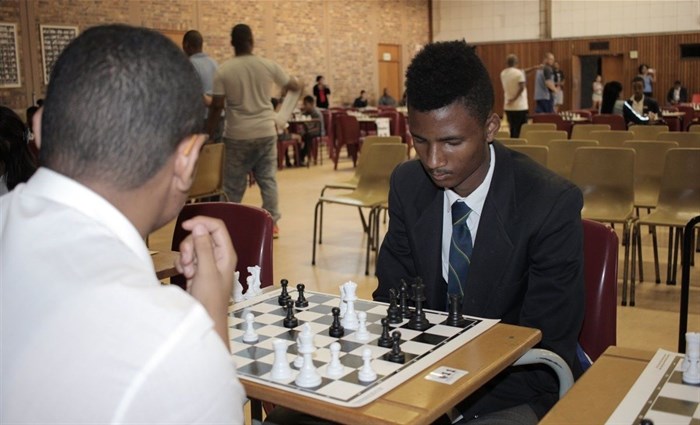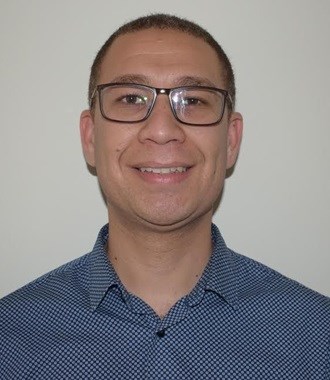






These programmes, which include a before and after school chess club, teacher and learner support group, and a high school dropout prevention initiative, not only facilitate change in school culture, but have been designed to address school disengagement factors. They also support the needs of educators, learners and parents using critical thinking projects and offering guidance support, especially to those students who are frequently absent from school as a result of problems that the communities they live in face – from gangsterism to drug abuse.
Through these programmes, Bottomup undertakes to understand why the youth of these areas have become disconnected, and where learners, educators and parents can come together and work toward building viable solutions for those who are hoping to make their desire to have a better life a reality.
We caught up with Ashley Visagie, director of Bottomup, to find out more about the organisation, its outreach programmes, what it's trying to tackle, the statistics around the dropout rate and the difference its efforts have been making.
 Can you tell us more about Bottomup’s outreach and what it entails? How did Bottomup come to be what it is today?
Can you tell us more about Bottomup’s outreach and what it entails? How did Bottomup come to be what it is today?Bottomup is 10 years old and our approach has shifted significantly from when we started out. In the early days, we were focused mainly on co-curricular and extra-curricular activities aimed at creating opportunities for students that were simply not available or easily accessible in under-resourced schools.

After years of taking the typical non-profit approach we recognised that unless attention was put on the structural/macro-level factors that produce disadvantage and educational inequality in the first place, there would be little hope of genuinely transforming schools in a lasting way. Our main focus now is on promoting student agency through critical pedagogy and youth critical action research. It is about helping students to recognise injustice and to exercise the power they have in ways that can meaningfully transform their situation.
 What changes have you personally seen in the schools that you assist?
What changes have you personally seen in the schools that you assist? There have been several small victories over the years. The greatest change I think has been the growth of social capital for the schools we have worked with. Through the relationships we have built, schools have seen their own networks expanded. Perhaps an excellent example of this is the construction of the Parkwood Tech Centre at Parkwood Primary School, which was enabled totally through voluntary assistance and crowdfunding and was led by two Stanford University graduates, Morgan Abbett and Adrienne Johnson. Other very practical ways in which we have seen change recently has been through our action research committees which are student-led.
ParkwoodTechCentre - Bringing hope to the children of Parkwood - https://t.co/3uGoJqu6Aa pic.twitter.com/IotfWbQm48
— Bottomup Nonprofit (@bottomupsd) December 4, 2016
The students identified issues contributing to student disengagement (and ‘drop out’) on their school, one of which included corporal punishment. They then took responsibility to address the school principal on the seriousness of the matter and they have even had an influence on our organisation as we have made plans to host a teacher workshop on corporal punishment, non-violent discipline and restorative justice.
 Could you provide us with some statistics on some of the issues you’re trying to address? What is the dropout rate that you are trying to tackle?
Could you provide us with some statistics on some of the issues you’re trying to address? What is the dropout rate that you are trying to tackle?The national dropout rate from Grade R-12 is around 45% which is incredibly alarming yet unsurprising given some of the broader issues in education, including policies which do not really favour redistribution of resources in an equitable manner and the fact that many South African students are being asked to do school in a language that is not their home language. Added to the macro-level political issues are the more contextual and community level concerns such as the prevalence of crime and gang violence, lack of access to basic services and other such factors which make schooling and learning a challenge.
In some of the schools we work, the dropout rate is even higher than the national dropout rate. I do need to mention though that as an organisation we have taken the stance that the term “dropout” is sometimes unhelpful because it masks many of the issues contributing to the problem and can sometimes lead to a focus on trying to solve the problem only at the level of the individual. We believe students come to school in order to learn but often suffer several troubles at a micro, meso and macro level that lead them to disengage from school. So we need to stop viewing the student as a “dropout” with all the stigma that goes along with that and begin to ask more serious questions about what is wrong with the system that half of the students are being excluded from education through its effects.
 The projects that Bottomup has engineered – could you tell us more about this. How have children, parents and educators adapted and grown from this?
The projects that Bottomup has engineered – could you tell us more about this. How have children, parents and educators adapted and grown from this?In the youth action research committee groups, students have learned to recognise power and structure and the influence societal structures have on human suffering. They have also learned about their own agency and that they have the power to able to speak back to power. In this regard, the student committees have all identified key concerns at the school relating to student disengagement and have started working toward solutions.
This has included students meeting with teachers and principals, conducting interviews and discussing alternatives to problematic disciplinary policies or school codes of conduct that are one-sided and hold students accountable without also holding educators accountable.

 How will you be ensuring that the work that Bottomup is doing is sustainable in the long-term?
How will you be ensuring that the work that Bottomup is doing is sustainable in the long-term?Sustainability in the social sector is always a challenge as much of what takes place is dependent on third-party donors. If schools were adequately resourced to provide quality education and teaching resources were distributed equitably, a non-profit sector would not really be needed as much. As an organisation, we believe the non-profit is a helpful vehicle to contribute to social change but we also recognise that it is an interim measure and so in all we do, we try to include an advocacy component to draw attention to and lobby support for the broader macro-level issues in education.
We don’t really want to deliver extra-curricular and co-curricular programmes forever, we want schools to be well resourced to be able to deliver these themselves. This is also not just a matter of attitude or skills development, there are very real financial, physical and human resource capacity problems as a result of Apartheid’s inequitable funding models as well as contemporary problems in policy that do not really do enough to redistribute resources equitably.
 Tell us how we as the community and businesses can assist Bottomup with their projects and initiatives?
Tell us how we as the community and businesses can assist Bottomup with their projects and initiatives?We obviously welcome volunteers who can assist in a long-term capacity (12 months) and one such initiative that could benefit from skilled volunteer assistance is a music project we have recently launched at Lotus High School. However, the greatest need for many organisations is for regular financial support to cover human resource expenses to staff projects. We would welcome regular financial support from individuals or organisations who wish to build a long-term relationship with Bottomup.

 How do you see Bottomup and its initiatives developing in the long term?
How do you see Bottomup and its initiatives developing in the long term? Our next steps are to see our Youth Action Research Committees implemented in more schools within our target zone. We believe it is a project that is working and which has great potential to work both in individual schools as well as across schools through the development of a student network/movement.
In the long-term future, we are considering establishing a school that will foster ethical thinking and use social justice education in a more integrated, deliberate and intentional way. The obvious drawback with the idea is that it will only be able to cater to a small number of students. On the other hand, perhaps it would also have the possibility of showcasing a model that has the ability to speak back to the education system as a whole, a kind of proof of concept.
 If any, what are the future projects that you will be focusing on and/or launching?
If any, what are the future projects that you will be focusing on and/or launching? In the next three to six months, to complement our work we also wish to establish a mobile library of readings for social justice. Many of our schools do not have libraries at all and in those school who are fortunate to have a library or book room we have noticed a serious lack of African literature and non-fiction books.
It is quite sad that a student should go through their entire school career and never be introduced to great thinkers like Paulo Freire, Frantz Fanon or Ngugi wa Thiong’o, or that they should live in the city and not be able to even know who the people are behind our new road names because their history textbooks do not cover the contributions of people like Philip Kgosana or Imam Haroun. Our library will be housed at our office and books will move with our facilitators in mobile book crates from which students can check out books using a mobile classroom library app.
For more on Bottomup and its initiatives, be sure to visit the following social media channels: Facebook, Twitter and Instagram.